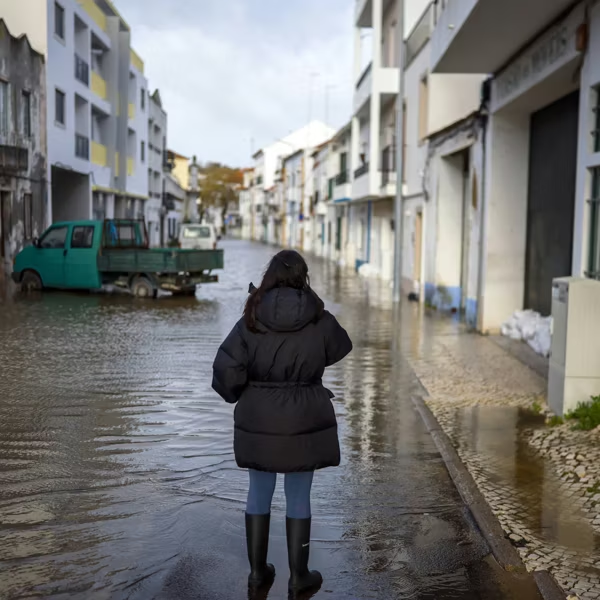Much attention has been devoted in recent times to the environmental and economic effects of climate change. Much less attention, however, has been given to the possible effects of climate change, particularly global warming, on the health of the populations, particularly those from the poorest countries. This is a trend that requires prompt attention if the negative effects of climate change on health are to be avoided or minimized. According to some estimates, at least 1 in 6 people worldwide will suffer the consequences of climate change.
"To avoid many of the health impacts of climate change it is important to strengthen public-health programs."
The World Health Organization (WHO) estimates that global warming and rainfall changes cause the loss of at least 150,000 lives every year. This figure could increase significantly if current trends of climate change continue. The WHO also states that the risk of death and disease from climate change will at least double in the next 20 years. Paradoxically, the countries that have least contributed to global warming are the most vulnerable to its negative consequences.
Global warming can affect the health of populations both directly and indirectly. Direct effects can result from heat-related deaths or weather-caused disasters such as hurricanes and drought-related wildfires. Indirect effects can result from alterations in complex ecological processes such as changes in the patterns of infectious diseases, in the quantity and quality of domestic food production, and altered potable water supplies. Experts predict that receding waters in the Ganges River could affect the lives of 400 million people.
Climate change could also alter the geographic distribution of disease vectors and thus alter the epidemiology of vectors-transmitted diseases. Some diseases such as malaria, yellow fever, dengue and encephalitis, which are spread by insects, are sensitive to climate, since mosquitoes thrive in warmer climates. Other diseases, like cholera, are closely linked to the quality of potable water supplies, which can be seriously eroded by increasing rains, resulting in flooding and contamination by microorganisms.
Climate change will seriously affect food production, since many cereal crops can be affected by higher temperatures. This will have an effect not only on the amounts of food available but also on the economies of the countries affected.
Crop failures will provoke a higher death toll in poor countries, particularly among children, as a result of malnutrition. The Food and Agriculture Organization of the United Nations estimates that almost 800 million people in developing countries do not currently have enough to eat, a figure that is bound to increase substantially as a result of climate change.
In addition, prolonged heat waves will likely increase deaths from heart disease, since the cardiovascular system must work harder to keep the body cool. Because the elderly and the sick are more susceptible to the effects of extreme changes in temperature, heat waves will also pose health risks to those populations. Warmer weather may also provoke increases in ground-level ozone, which will increase the frequency of respiratory diseases by damaging lung tissue and sensitizing the respiratory tract to other irritants.
Increased global warming could exacerbate the frequency and intensity of natural disasters, increase the number of environmental refugees fleeing from weather-related disasters, and augment the risk of disease migration and epidemics. While the range of health consequences is wide and their magnitude difficult to predict, children are among the most vulnerable to these changes. Since children constitute almost half of the population in many developing countries, such problems assume even greater significance.
Although human populations vary widely in their vulnerability to climatic change, one may reasonably predict that those particularly affected will be the poor and marginal populations that have less easy access to adequate health services to respond to emergencies. In this regard, climate change will exacerbate the disparities between the rich and the poor throughout the world. Not only will the poor in developing countries be affected, however, but even the poor in industrialized societies.
To respond to the challenges of climate change, however, requires more than resources and technology. What is necessary is increased education, advocacy and the creation of legal frameworks to allow the people and governments better-informed and sustainable policy decisions. It is also important to develop risk-communication strategies.
To avoid many of the health impacts of climate change it is important to strengthen public-health programs so that they can monitor and treat the spread of infectious diseases, and respond more effectively to health emergencies as they appear. Climate change is a most serious health risk. We will ignore its consequences on the health of the populations at our own risk.




